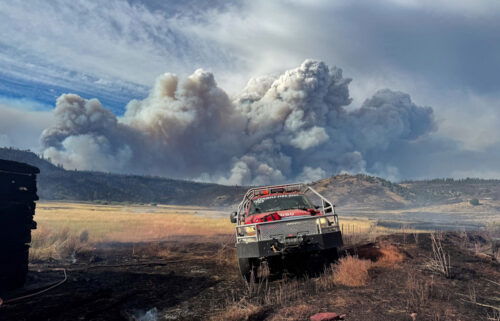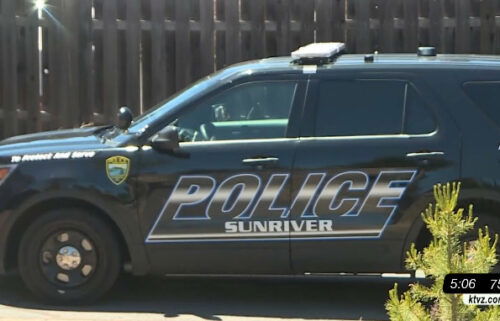Bend tavern fights copyright infringement lawsuit

The owners of M&J Tavern in downtown Bend are being sued for music copyright infringement. Because of that, they decided to stop all live music performances — and local musicians are not happy about it.
Richard Whittemore, the president of Chukar Inc., which owns the bar, claimed Monday he didn’t know he was violating any laws and thought he was in compliance. Now, he’s just trying to protect his bar.
“We thought, just to be safe, we’ll just stop all music,” Whittemore said. “I’m sorry for the local musicians, but there’s nothing we can do about it at this point, except wait and see if they want to bankrupt the M&J, I guess.”
Broadcast Music Inc. (BMI) is an agency representing more than 900,000 artists and 14 million songs. In fact, officials said one out of every two songs you hear on the radio belongs to someone they represent.
The lawsuit alleges the M&J Tavern allowed the performance of six copyrighted songs one night in August 2016. The problem is, the tavern does not have a license from BMI to play those songs.
Jodie Thomas, BMI’s executive director of corporate communications, said Monday they don’t want to sue anyone, but their job is to make sure their artists, songwriters, producers, etc. get paid.
“All songwriters are entitled to be fairly compensated for their work,” Thomas said. “There are thousands of unknown songwriters who write the hits that you hear on the radio, and the money that BMI collects from licensing fees helps them pay their bills so they can keep creating the music that we all enjoy.”
Central Oregon musicians aren’t having it.
One musician told NewsChannel 21, “I’m upset. The (M&J) is like an incubator for local startup musicians.”
Another musician, Jackson Conrad, said he thinks the reason BMI is pushing the lawsuit is simple: to get more money.
Two artists mentioned in the suit are the late Michael Jackson and Johnny Cash. Conrad thinks BMI’s reasoning that the money is for artists who need it doesn’t make sense, since these artists are no longer alive.
“In my opinion,” he said, “Johnny Cash would be turning in his grave if he found out some rich guy came in and hindered kids and young adults and older adults from playing his music.”
In response to these claims, Thomas was adamant: “It’s important to understand that we only take legal action as a last resort,” she said. “(We) spend a lot of time, sometimes years, trying to educate businesses on why they need a music license.”
She also said her company’s end game is not to bankrupt the M&J, but to get the bar licensed so that her artists are paid what they’re due.
So what does the actual process of getting licensed look like?
One of the three owners of Bend’s Silver Moon Brewing helped break down what they do to be compliant.
If a bar, restaurant, store or any other establishment were to play a song owned by BMI or other big agencies (such as the American Society of Composers, Authors and Publishers — ASCAP), they’d have to pay up.
In fact, Matt Barrett said his brewery has licenses with not one but three different agencies.
“What makes it hard for bars and restaurants is, it can be confusing as to what the charges are and what they’re charging you for, and if you’re even required to have a license,” he said. “And it’s not easy necessarily to get that information.”
“I think with M&J, they could have easily not thought that they were out of compliance,” Barrett added.
If Silver Moon wants to play music — whether its live or just the music we hear playing over the speakers — they need a license, Barrett explained. On top of that, there are variables that affect the pricing, such as how many people will be listening.
Barrett said his brewery pays thousands of dollars a year to make sure music is filling the taproom.
But he said the license worth it.
Meanwhile, back at the M&J Tavern, Whittemore said come January, he and his lawyers will be figuring out their next steps. His hope is to get music back in the bar’s speakers and musicians back on stage.
To help clarify the rules, Thomas explained:
“Any establishment playing music in a public setting, regardless of whether it is a live band, recorded, DJ, karaoke or a jukebox must get permission from the copyright owner, and in most cases, that permission comes in the form of a music license.”



